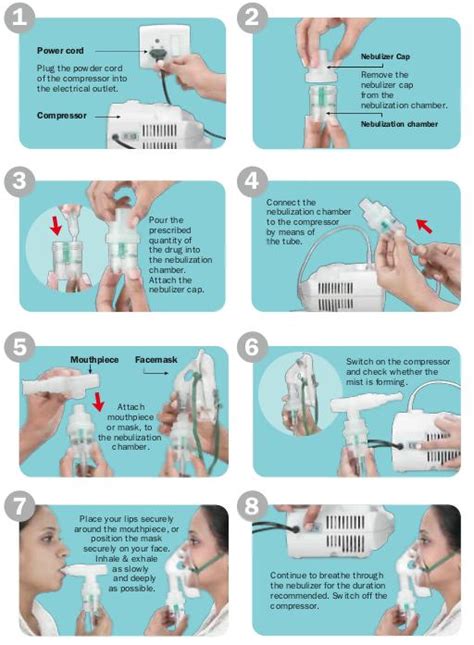Fluticasone Propionate Nasal

Fluticasone propionate nasal sprays are a type of corticosteroid medication that is commonly used to treat various nasal conditions, including allergic rhinitis, non-allergic rhinitis, and nasal polyps. The active ingredient, fluticasone propionate, is a synthetic steroid that works by reducing inflammation and swelling in the nasal passages, thereby relieving symptoms such as congestion, runny nose, itching, and sneezing.
How Fluticasone Propionate Nasal Sprays Work
When administered intranasally, fluticasone propionate sprays exert their effects locally, directly targeting the nasal mucosa. The mechanism of action involves the binding of fluticasone propionate to glucocorticoid receptors, which then translocate to the nucleus and influence gene transcription. This leads to a decrease in the production of pro-inflammatory cytokines and an increase in the production of anti-inflammatory cytokines, resulting in reduced inflammation.
Indications and Uses
Fluticasone propionate nasal sprays are prescribed for several conditions: - Allergic Rhinitis: To alleviate symptoms associated with seasonal or perennial allergic rhinitis, such as sneezing, runny or itchy nose, and nasal congestion. - Non-Allergic Rhinitis: For the treatment of non-allergic nasal symptoms, which may include nasal congestion and runny nose not caused by allergies. - Nasal Polyps: To reduce the size of nasal polyps and alleviate symptoms in patients with nasal polyps.
Dosage and Administration
The dosage of fluticasone propionate nasal sprays can vary depending on the specific product and the patient’s condition. Generally, the recommended dose for adults is 2 sprays in each nostril once daily, which can be adjusted based on the severity of symptoms and patient response. It’s crucial to follow the healthcare provider’s instructions and the product label for proper use.
Side Effects and Precautions
While fluticasone propionate nasal sprays are generally well-tolerated, they can cause side effects. Common side effects include: - Nasal dryness or irritation - Bloody nose - Sore throat - Headache - Cough
Rare but more serious side effects can include: - Nasal septum perforation - Glaucoma and cataracts (with prolonged use) - Hypersensitivity reactions - Adrenal suppression (with high doses or prolonged use)
It’s essential to talk to a healthcare provider about any side effects or concerns.
Precautions and Warnings
Before using fluticasone propionate nasal sprays, patients should inform their healthcare provider about any medical conditions, especially: - Recent nose problems (e.g., injury, surgery, sores) - Untreated fungal, bacterial, or viral infections - Glaucoma or cataracts - Immunosuppression
Pregnant or breastfeeding women should consult their healthcare provider before using fluticasone propionate nasal sprays.
Interaction with Other Medications
Fluticasone propionate nasal sprays can interact with other medications, including: - Ritonavir and other potent CYP3A4 inhibitors, which can increase the levels of fluticasone propionate in the body - Other corticosteroids, as concomitant use may increase the risk of systemic corticosteroid effects
Conclusion
Fluticasone propionate nasal sprays offer an effective treatment option for various nasal conditions by providing local anti-inflammatory effects with minimal systemic absorption. As with any medication, it’s essential to use these sprays as directed and under the guidance of a healthcare provider to maximize benefits and minimize risks.
What is the primary use of fluticasone propionate nasal sprays?
+The primary use of fluticasone propionate nasal sprays is to treat allergic and non-allergic rhinitis and nasal polyps by reducing inflammation and congestion in the nasal passages.
What are common side effects of fluticasone propionate nasal sprays?
+Common side effects include nasal dryness, bloody nose, sore throat, headache, and cough. Rare but more serious side effects can occur, such as nasal septum perforation and adrenal suppression.
Can fluticasone propionate nasal sprays interact with other medications?
+Yes, fluticasone propionate nasal sprays can interact with other medications, including ritonavir and other potent CYP3A4 inhibitors, and other corticosteroids, potentially increasing the risk of systemic corticosteroid effects.
How should I use fluticasone propionate nasal sprays?
+Follow the healthcare provider’s instructions and the product label for proper use. Generally, the recommended dose is 2 sprays in each nostril once daily, but this can be adjusted based on the severity of symptoms and patient response.
Are fluticasone propionate nasal sprays safe for pregnant or breastfeeding women?
+Pregnant or breastfeeding women should consult their healthcare provider before using fluticasone propionate nasal sprays, as the safety for these groups has not been fully established.


